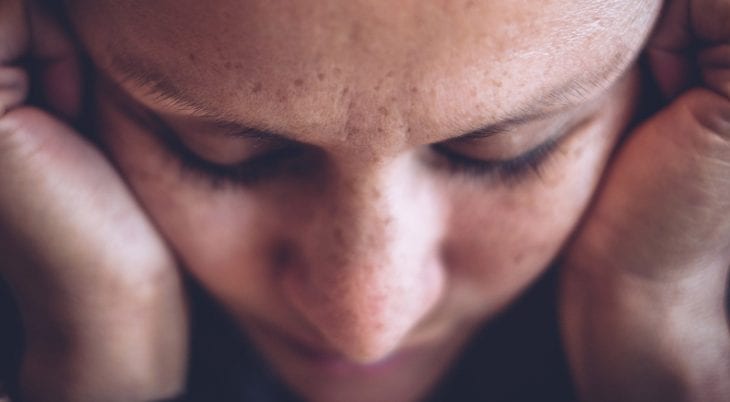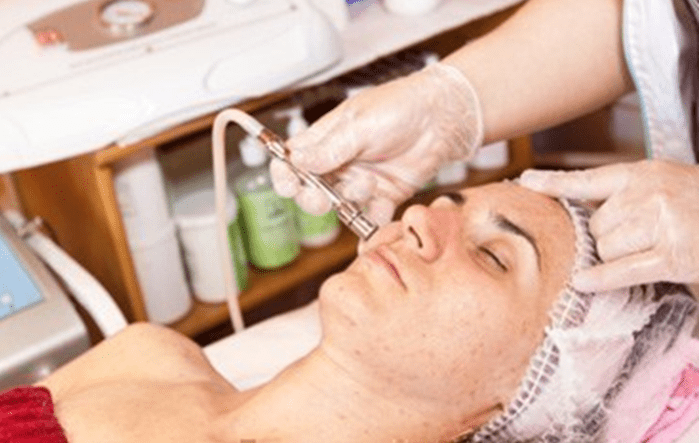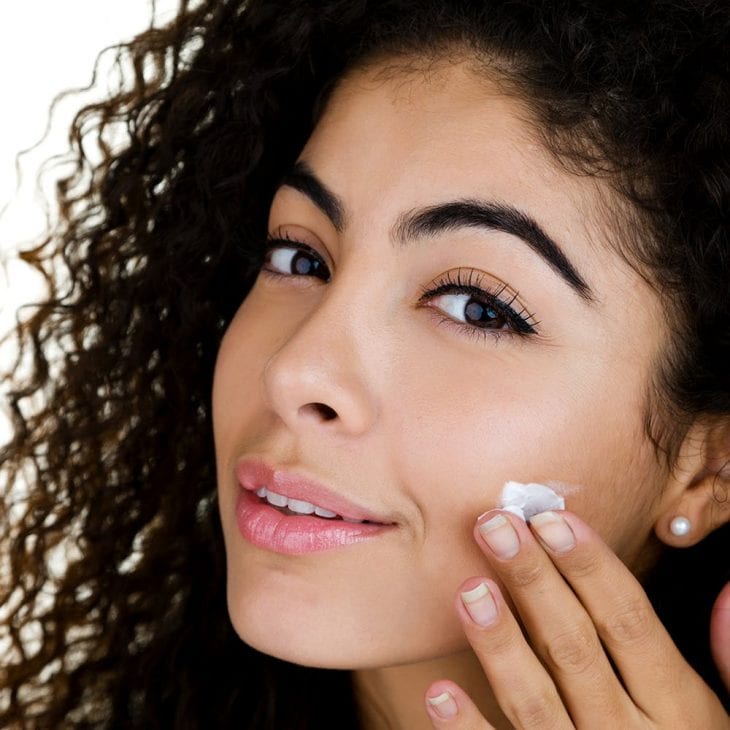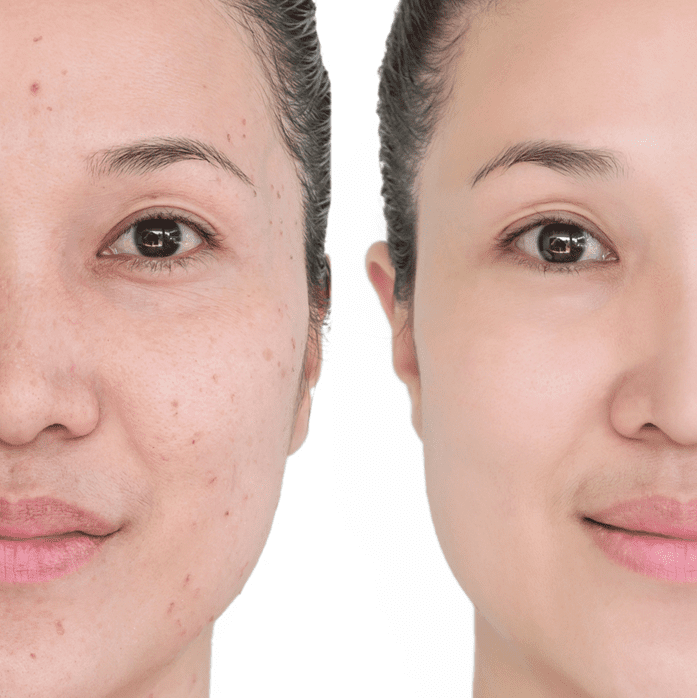One of the more painful struggles for people with acne is the dark, pigmented spots that are left on the skin after a pimple has healed. These dark spots are often miss-characterized as “acne scars” and are clinically referred to as “post-inflammatory hyperpigmentation” (PIH).
Contents
- Why does hyperpigmentation develop?
- Why are post-acne dark spots so common?
- Acne scars vs. post-inflammatory hyperpigmentation
- How to prevent the development of dark spots from a pimple?
- Does exfoliating help with treating dark spots?
- What is the best treatment for post-acne dark spots and hyperpigmentation?
- Why is hydroquinone the best treatment for hyperpigmentation?
- Do topical retinoids help with hyperpigmentation?
- Do alpha and beta hydroxy acids (AHAs and BHAs) help with hyperpigmentation?
- What is the best dark spot treatment for people with acne-prone skin?
- So, what’s the best way to treat and prevent dark spots?
- How long does it take to get rid of hyperpigmentation?
Why does hyperpigmentation develop?
Dark spots (i.e. hyperpigmentation) develop when the skin is traumatized by inflammation, sun exposure, and/or physical trauma (wound abrasion). A protein in the skin called melanin is what gives the skin color and in excess, it can cause the appearance of dark spots. Post-acne dark spots appear in people of all skin types and colors but tend to be more severe and longer-lasting for people with medium to darker skin tones. You can check out Banish for more information.
Why are post-acne dark spots so common?

Img source: proactiv.com
Post-inflammatory hyperpigmentation can result from even the smallest of pimples. That said, the bigger and more inflamed an acne pimple, the larger, darker, and more stubborn the resulting dark spot will be. Picking or popping a pimple increases the chance of developing PIH because of the increased damage to the skin. Sun exposure will also make existing hyperpigmentation even darker by further increasing the melanin in the skin.
Acne scars vs. post-inflammatory hyperpigmentation
There is often confusion between true acne scars and dark spots—often when people talk about struggling with acne scars, they are actually referring to hyperpigmentation, which is quite different! True acne scars occur when there is either a loss of tissue, causing a pitted or depressed spot (atrophic scar), or an overgrowth of tissue leaving a raised scar (keloid). PIH, on the other hand, tends to be flat but simply has a darker appearance than the surrounding skin. Prevention is the best course with proper acne treatment from a qualified dermatologist, such as West Dermatology.
How to prevent the development of dark spots from a pimple?
Getting rid of post-inflammatory hyperpigmentation starts with getting to the root of the problem. The first step is treating and preventing future acne breakouts with an effective, medical-grade topical acne treatment. The less active acne, the less chance for future dark spots! Next, it is super important to wear daily oil-free sunscreen. This will prevent existing hyperpigmentation from getting darker and help prevent new spots from forming.
Does exfoliating help with treating dark spots?

Image: American Academy of Dermatology Association
When it comes to treating dark, post-acne spots, exfoliation can actually do more harm than good as it can over-irritate already sensitive skin. Professional exfoliation and skin-resurfacing treatments such as microdermabrasion and mild chemical peels from a licensed esthetician or dermatologist can help but should be used with caution.
What is the best treatment for post-acne dark spots and hyperpigmentation?
The “gold-standard” formula for treating hyperpigmentation was initially formulated by a renowned dermatologist, Dr. Albert Kligman and has been the go-to treatment for most for decades. The traditional formula (Kligman Formula) uses a combination of hydroquinone (a medical-grade lightening agent), retinoids (to increase the penetration of the hydroquinone into the skin), and hydrocortisone (to calm down that inflammation that causes the dark places in the first space).
Why is hydroquinone the best treatment for hyperpigmentation?
Hydroquinone is considered by dermatologists to be the single most effective, medical-grade ingredient for the treatment for hyperpigmentation. Why? Well, hydroquinone works by actually blocking the enzyme responsible for overproduction of melanin that creates dark spots, creating a true, “natural” lightening effect by simply reducing the excess pigmentation that created dark spots in the first place. The maximum strength that you can get without a prescription is 2%. To maximize the efficacy, it should be combined with alpha hydroxy acids and retinoids to help increase the penetration into the skin.
Do topical retinoids help with hyperpigmentation?

Img source: brit.co
Topical retinoids can be helpful for many skin conditions, especially acne-prone skin as they help increase the rate of cell turnover and unclog skin pores. Simultaneously, this rapid cell turnover (i.e. chemical exfoliation) can also speed up the removal of excess melanin granules from the skin, ultimately helping fade—or remove—post-acne dark spots.
Do alpha and beta hydroxy acids (AHAs and BHAs) help with hyperpigmentation?
Alpha hydroxy acids (especially glycolic acid), and beta hydroxy acids (salicylic acid) are a great starting point for treatment of post-acne dark spots. Similar to retinoids, AHAs and BHAs help increase the rate of the skin’s natural exfoliation process, which ultimately can help improve the look of PIH.
A combination of topical retinoids with alpha and beta hydroxy acids is especially beneficial to people with acne prone skin to help treat both active acne and post-acne spots.
What is the best dark spot treatment for people with acne-prone skin?
The MDacne Dark Spot Remover Cream is the most effective dark spot remover available without a prescription for the treatment of dark spots in acne-prone skin. It combines the maximum, prescription-level percentage of hydroquinone (2%) with retinol and alpha hydroxy acids to simulate the effect of prescription Kligman formula with comparable efficacy. By removing the hydrocortisone in the original formula and replacing it with plant extracts like VItamin C and Licorice Root, it is also less irritating and safer for long-term use and reduces the need for additional products and serums.
So, what’s the best way to treat and prevent dark spots?

Post-acne dark spots are frustrating and you probably want them to be gone…yesterday. However, before you start implementing any dark spot treatment, it’s important to prioritize managing any active acne first as every new pimple will cause yet another dark spot to deal with.
Most people with mild to moderate acne can successfully control breakouts with topical, medical-grade products customized to their skin (take the free MDacne skin assessment to see which products are right for you). Cases of more severe acne may require the addition of an oral intervention such as oral antibiotics, hormone regulators, or even Accutane (the strongest treatment available for the treatment of acne).
While managing your active breakouts—do not pick at or touch your face! This will only make matters worse. You can also help prevent new spots from forming and prevent existing spots from darkening with a daily oil-free sunscreen formulated for acne-prone skin. Once your active acne is controlled, you can then add a medicated dark spot treatment to your skin care regimen to help fade dark spots more quickly.
How long does it take to get rid of hyperpigmentation?
By controlling active acne, wearing a daily SPF, and implementing a medicated dark spot remover, you can expect to see dark spots start to fade within a week or two. By maintaining your routine and preventing new breakouts, you should see optimal results within 12 weeks.
